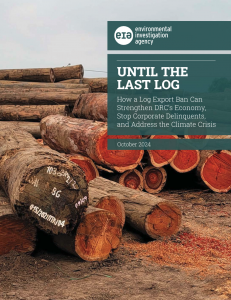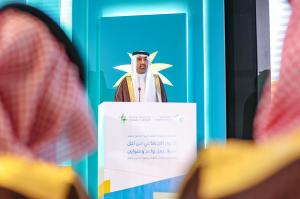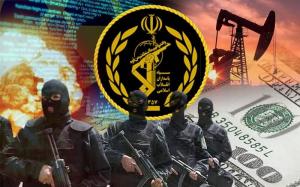
The Canadian gov. has listed the (IRGC), the main arm of repression, warmongering, and exportation of terrorism of Iran’s regime, as a terrorist org. The Iranian resistance is aware of the role of the Iranian regime and the IRGC in international terrorism.
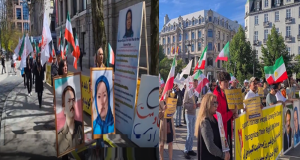
Simultaneously with the approval of the IRGC’s listing, freedom-loving Iranians in various Canadian cities welcomed the approval of this resolution aimed at isolating the mullahs’ terrorist dictatorship globally, through demonstrations and expressions of joy.
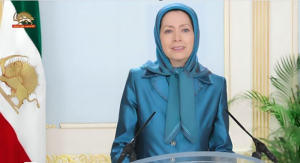
Mrs. Maryam Rajavi, after the announcement of the IRGC’s listing by Canada on June 19, 2024, said, “Canada’s designation of the IRGC as a terrorist entity is a commendable step, deserving congratulations to the parliament and government of Canada."
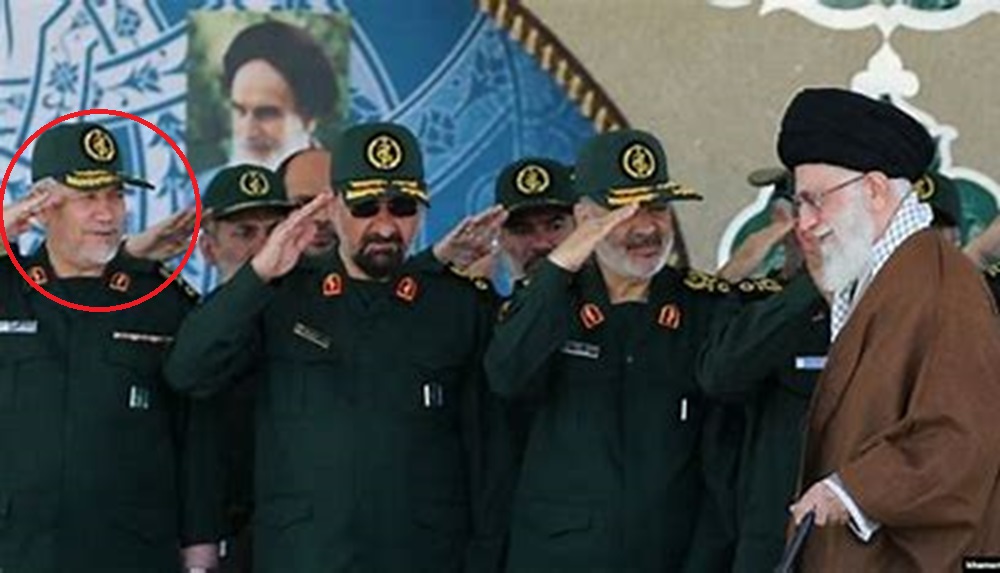
Rahim Safavi, former IRGC commander and advisor to Ali Khamenei, discussed the regime’s regional meddling and support for terrorism. He said “resistance groups” like Hezbollah and Hamas, are funded by Iran. He argued for expanding Iran’s “strategic defense”.
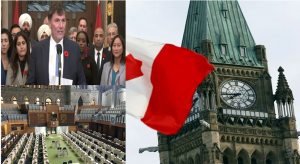
The regime’s fear of the Canadian government’s action is understandable, as this action was taken in response to a resolution by the Canadian Parliament. This trend has been ongoing in European countries and the United States.
The Canadian government’s decision to list the IRGC has provoked anger and fear in the mullahs’ regime, threatening that “Iran will respond to this action.” Mrs.Rajavi "The Iranian Resistance has been advocating for this designation for years. This measure is essential in response to four decades of suppression, terrorism, and warmongering by the regime."”
— NCRI PARIS, FRANCE, June 24, 2024 /EINPresswire.com/ -- The National Council of Resistance of Iran (NCRI) Foreign Affairs Committee in an article published that. The Canadian government has finally listed the Islamic Revolutionary Guards Corps (IRGC), the main arm of repression, warmongering, and exportation of terrorism of Iran’s regime, as a terrorist organization.
The Canadian Minister of Public Safety, in announcing this decision said the action “sends a strong message that Canada will use all of the tools at its disposal to combat the terrorist entity of the IRGC.
“The Iranian regime has consistently displayed disregard for human rights, both inside and outside of Iran as well as a willingness to destabilize the international rules-based order.”
Simultaneously with the approval of the IRGC’s listing, freedom-loving Iranians in various Canadian cities welcomed the approval of this resolution aimed at isolating the mullahs’ terrorist dictatorship globally, through demonstrations and expressions of joy.
This action by Canada quickly made headlines worldwide, reflecting how global public opinion, thanks to the revelations by the Iranian resistance, is aware of and sensitive to the role of the Iranian regime and the IRGC in international terrorism.
This action coincided with the arrest of a suspect in the shooting of Professor Alejo Vidal-Quadras, a prominent supporter of the People’s Mojahedin Organization of Iran (PMOI/MEK) and the Iranian Resistance, last November in Madrid, Spain.
This event demonstrates how the IRGC, as a state organization, extends its reach into the heart of Europe and across the world, from America to Africa and Asia, threatening the lives of citizens in these countries.
The Canadian government’s decision to list the IRGC has provoked anger and fear in the mullahs’ regime. The regime’s Foreign Ministry spokesman, Naser Kanaani hastily reacted by calling the move a “political, unconventional, and unwise action” and an “assault on the mullahs’ sovereignty,” threatening that “Iran reserves the right to respond to Canada’s hostile action.”
Everyone knows that such statements from a notorious terrorist regime mean nothing but hostage-taking. Thus, the Canadian Foreign Minister emphasized that Canada’s action to hold the Iranian regime accountable was very important, adding, “Of course, the risk of arbitrary detention of Canadian citizens by this regime increases. We again urge all Canadian citizens to avoid traveling to Iran and those currently there to return to Canada.”
The regime’s fear of the Canadian government’s action is understandable, as this action was taken in response to a resolution by the Canadian Parliament. This trend has been ongoing in European countries and the United States.
Parliamentary resolutions and statements by lawmakers in these countries to compel their governments to list IRGC have been influenced by the tireless efforts of freedom-loving Iranians, supporters of the resistance, and parliamentary conferences held to pursue this long-standing demand of the Iranian Resistance.
A look at the demonstrations and conferences held in the past couple of months and last year, or the demonstrations marking the anniversary of the anti-monarchy revolution in February 2023, held in the harshest cold in Canadian cities, during which the call for the IRGC’s terrorist listing resonated, clearly shows this trend.
This is the same trend that has been ongoing in Europe, and in addition to national parliamentary statements and resolutions, has so far led to two powerful resolutions for the IRGC’s listing in the European Parliament.
Last May, at a European Parliament session where the second resolution for the IRGC’s terrorist designation was approved, Parliament members strongly challenged the European politicians’ policy of appeasement and delay in fulfilling this demand.
Guy Verhofstadt, Member of the European Parliament and former Prime Minister of Belgium, addressing Josep Borrell, the EU’s High Representative for Foreign Affairs, said, “We don’t like your strategy. We want you to change your strategy.
Your strategy of diplomacy and appeasement leads to nothing at all; it does nothing at all. So, this Parliament asks you to change the strategy, based on real sanctions against the leadership of Iran first.
Secondly, recognize the Revolutionary Guard as a terrorist organization. I don’t understand why you don’t do it. And finally, don’t continue with diplomacy towards the regime. It’s time to recognize the opposition and to have direct contact with them. They are the real representatives of the Iranian people.”
Commanders in Iran’s Islamic Revolutionary Guard Corps (IRGC) frequently boast in fiery speeches about the regime’s status as a regional superpower.
They claim to dictate the fate of the Middle East and pave the way for a global Islamic government, as exemplified by former IRGC commander Yahya Rahim Safavi’s statement: “The honorable Imam (Khomeini) led the revolution to victory the ultimate goal is to establish an Islamic state all over the world.“
These pronouncements are often veiled or explicit. The IRGC leadership suggests current dominance in four regional capitals: Beirut (Lebanon), Damascus (Syria), Sana’a (Yemen), and Baghdad (Iraq). They believe further expansion aligns with their vision of a divinely ordained global Islamic state.
Meanwhile, the regime expends significant resources on intense political, terrorist, and seditious campaigns to prevent internal uprisings and maintain control.
Foreign Misconceptions and Domestic Struggles
Many foreign analysts mistakenly perceive the regime as a powerful regional player . However, all signs point to its failure in achieving the goals set after the 1979 revolution by its founder, Ruhollah Khomeini.
These goals included establishing an Islamic government in Iran and ultimately, worldwide.
The regime portrays the Islamic Revolution as a multi-stage process, with the current phase aimed at global Islamic rule
.
However,
recent events suggest otherwise.
A Look Behind the Facade: Safavi’s Interview
In a recent interview, Rahim Safavi, former IRGC commander and advisor to Supreme Leader Ali Khamenei, discussed the regime’s regional meddling and support for terrorism.
He emphasized past victories and the importance of “resistance groups” like Hezbollah and Hamas, funded by Iran. He argued for expanding Iran’s “strategic defense” to the Mediterranean and Indian Oceans. The High Cost of Ambition
Since its inception, the regime has poured billions of dollars into these destabilizing activities in neighboring countries. Countless organizations like Hezbollah benefit from significant annual budgets.
Adding these costs to astronomical expenses like nuclear programs and missile development, it’s clear that roughly half of Iran’s financial resources are funneled into these ambitions. This has led to the severe impoverishment of the Iranian people, evidenced by widespread poverty, unemployment, addiction, and social crises like brain drain and emigration.
A Crumbling Facade?
Responding to Safavi’s claims, Mohammad Hossein Karimipour, a former Iranian parliamentarian, criticized the regime’s declining legitimacy and growing internal and external opposition. He compared the regime’s potential downfall to that of Muammar Gaddafi, stating: “When your nation becomes poorer and angrier day by day… you will become Gaddafi in the sewer pipe.“
Karimipour’s words, combined with the regime’s recent electoral losses, suggest the rapid erosion of its four-decade project of establishing long-term control.
A Loss of Legitimacy and Power
Khamenei’s recent failures, from the Gaza conflict to manipulated elections, have eroded public trust and exposed the regime’s weaknesses. The excessive focus on external ambitions has come at a heavy domestic cost, jeopardizing the regime’s very existence.
Meanwhile, listing the IRGC as a terrorist organization has been a long-standing goal of the Iranian Resistance, dating back four decades, and has been emphasized in many speeches and messages by Maryam Rajavi, the President-elect of the National Council of Resistance of Iran (NCRI).
Mrs. Maryam Rajavi, after the announcement of the IRGC’s listing by Canada on June 19, 2024, said, “Canada’s designation of the IRGC as a terrorist entity is a commendable step, deserving congratulations to the parliament and government of Canada.
The Iranian Resistance has been advocating for this designation for years. This measure is essential in response to four decades of suppression, terrorism, and warmongering by the regime.
The people of Iran, along with majorities in 28 parliaments worldwide, demand that the regime’s leaders be held accountable for executions, massacres, genocide, crimes against humanity, the suppression of women, and the oppression of national minorities in Iran.”
If you wish to receive the NCRI weekly Newsletter, please use the following link to subscribe: https://bit.ly/3SMgEla.
Shahin GobadiNCRI+33 6 61 65 32 31email us here
The Iranian regime has consistently displayed disregard for human rights both inside and outside of Iran as well as destabilizing the international rules order.
[embed]https://www.youtube.com/watch?v=eYSiWzeJeno[/embed]
You just read:
News Provided By
June 24, 2024, 08:34 GMT
EIN Presswire's priority is source transparency. We do not allow opaque clients, and our editors try to be careful about weeding out false and misleading content. As a user, if you see something we have missed, please do bring it to our attention. Your help is welcome. EIN Presswire, Everyone's Internet News Presswire, tries to define some of the boundaries that are reasonable in today's world. Please see our Editorial Guidelines for more information. Article originally published on www.einpresswire.com as (Video) Iran:The implications of the terrorist designation of the IRGC by the Canadian government



